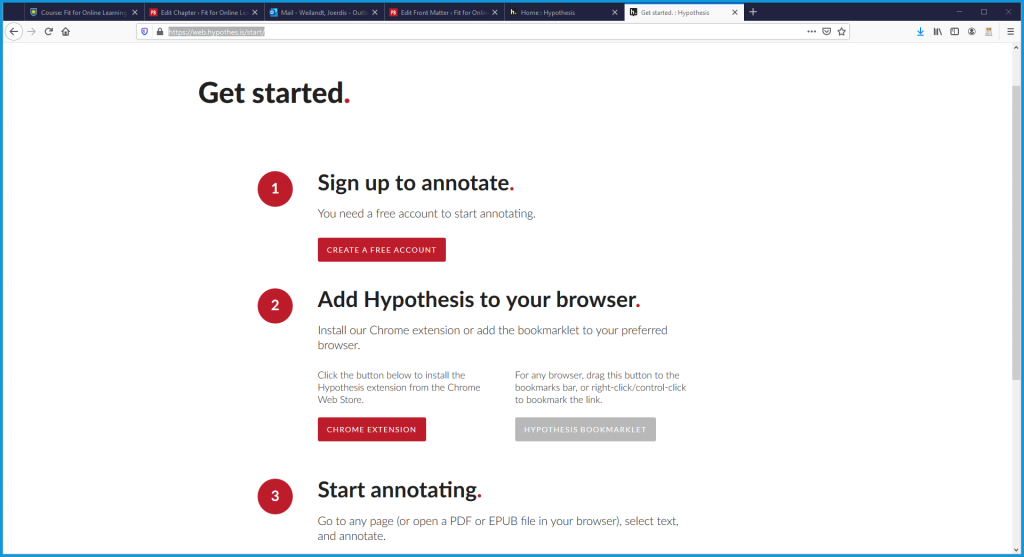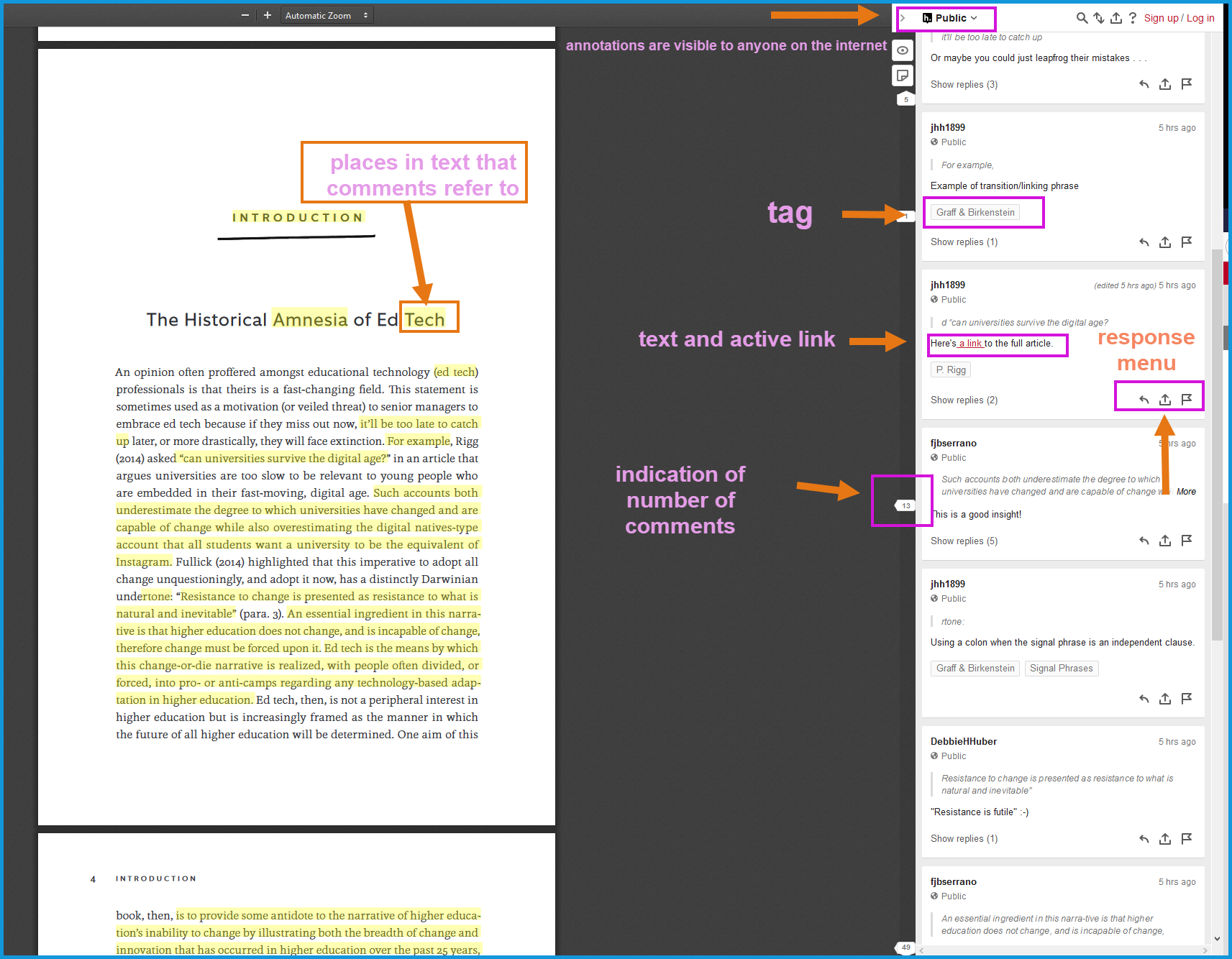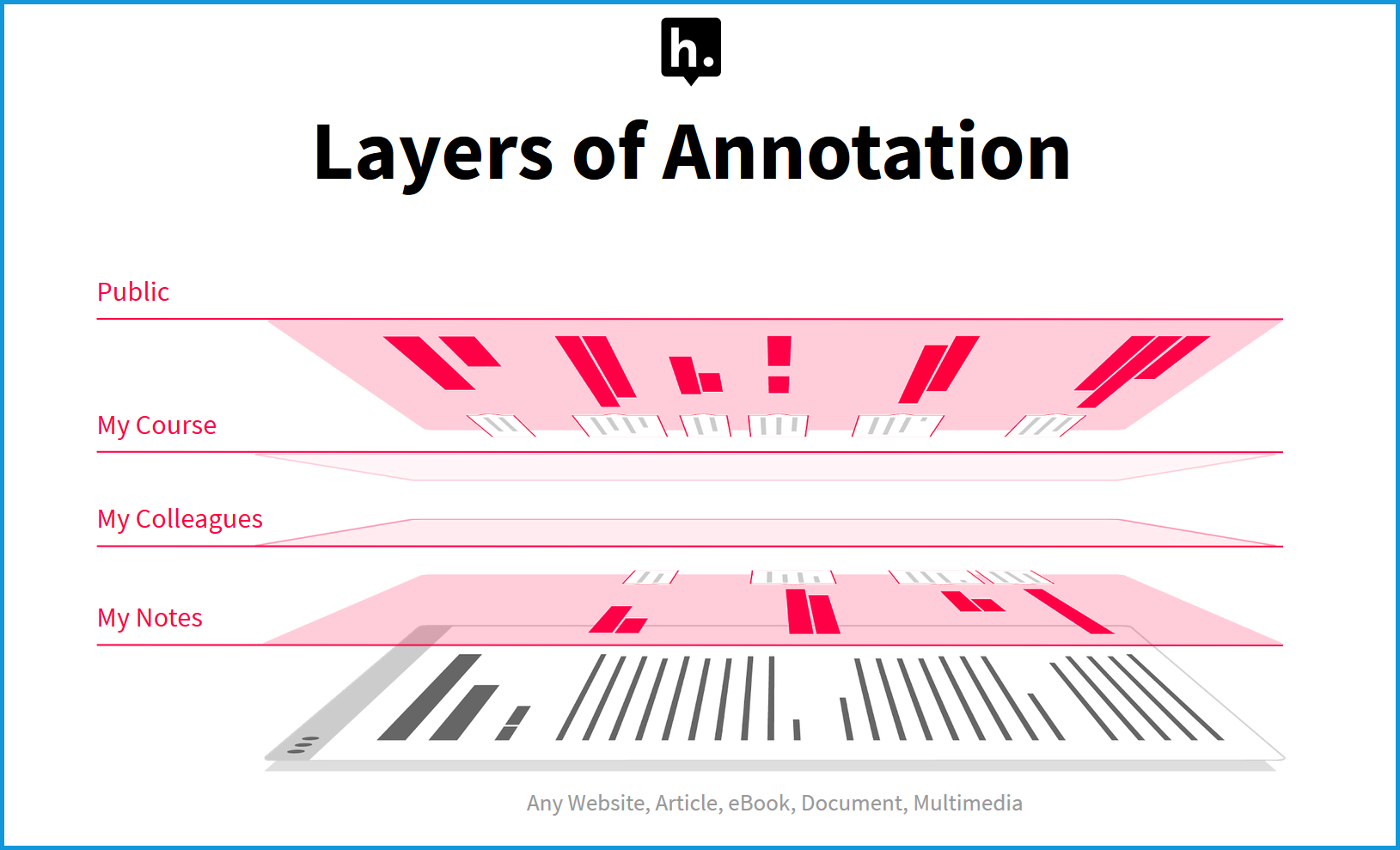Hypothesis
Hypothes.is is a web annotation tool that allows for public or private annotations of all freely accessible digital content on the internet, like for instance this Pressbooks course resource, Open Access Journal articles, websites and so much more.
You can thus bring discussion directly to course content by enabling your students to add comments and start conversations in the margins of their texts. Collaborative annotation engages students more deeply in course readings and gives teachers a view into how students are reading.

Hypothesis is an Open Educational Software tool that doesn’t require any downloads or installations. Instead you and your student set up an account, add a browser extension and then you can:
- enable Hypothesis on select readings (any online digital resource with a public-facing web link),
- create multiple layers of annotations for one resource (ranging from public shared with anyone to specific groups that are members only)
- create community by allowing your students to see what the others are writing and enable them to respond (using text, media, links)
- guide your students reading with prompts or questions
- have students tag their comments for better searchability (themes, patterns, groups, etc)
Note that in the process of creating the textbook resource for Fit for Online Learning, the authors utilized Hypothesis to discuss specific parts in development and share specific comments for improvement.
The screenshot below shows an example of an annotated page in an openly licensed book. Any resource that is digitally available (not behind a paywall( can be annotated using a Hypothesis browser extension.

Application: Provide us with Feedback on this Textbook Resource
The Fit of Online Learning Textbook resource was created with Pressbooks, which means that the result is an openly accessible publication that can be annotated with Hypothes.is.
Public Feedback: You are, of course, free to leave public feedback comments on this textbook resource as well. You can do so after your sign up to Hypothesis, the steps for which are laid out here:
https://web.hypothes.is/start/
Private Feedback: If you would rather share private comments, feel free to annotate our FitFOL2020 textbook resource in our closed group, which you can join here.
Media Attributions
- 2020-06-08_12-42-56
- 2020-06-12_13-33-45
- 2020-06-12_13-47-41


